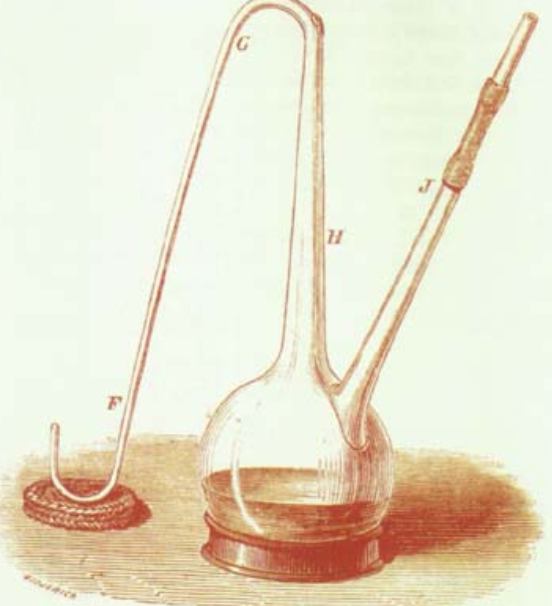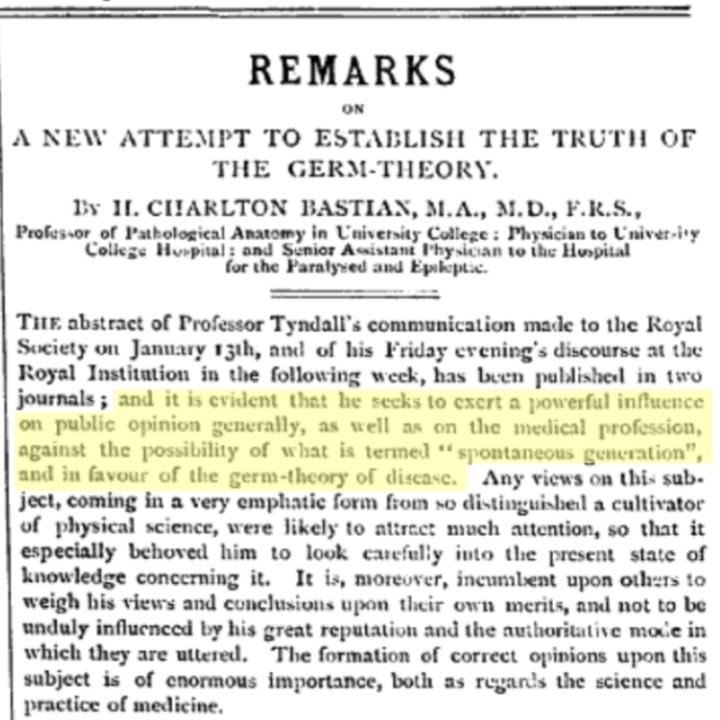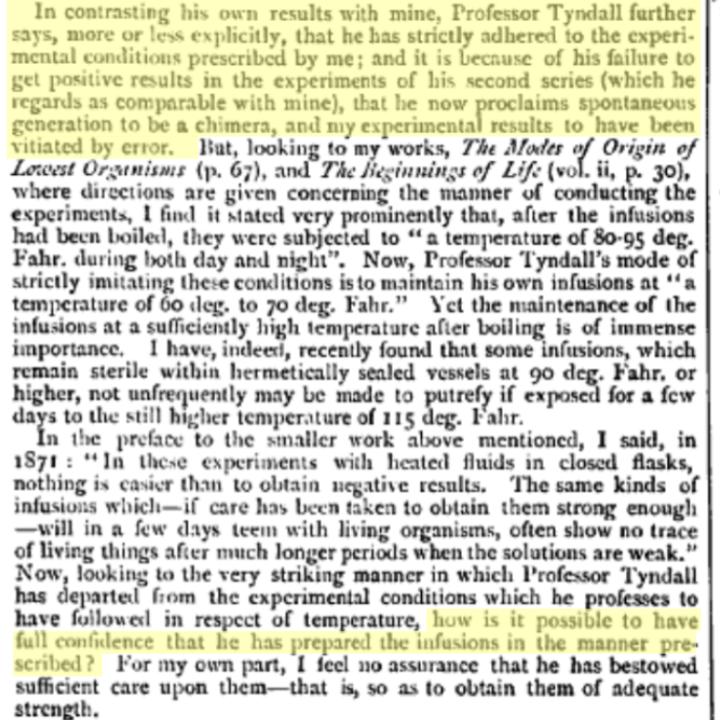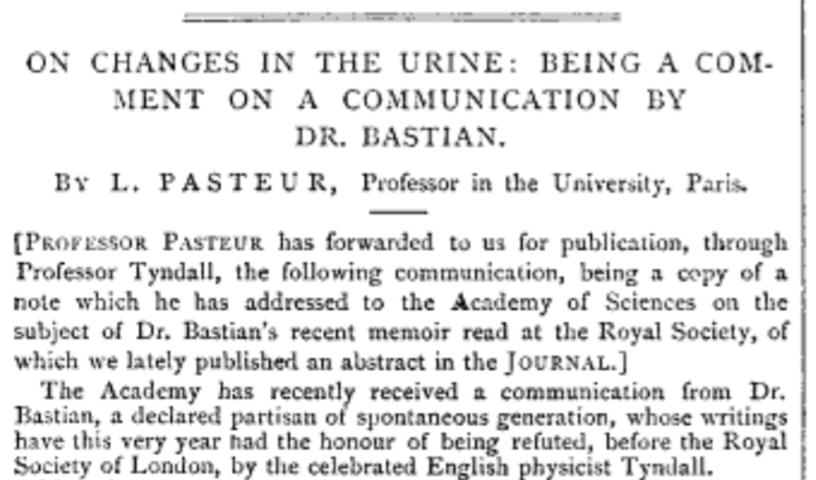Spontaneous Generation

2004, Louis Pasteur & the Founding of Microbiology
(Courtesy of Institut Pasteur, Paris)
Abiogenesis
The prevailing scientific belief of the 19th century was spontaneous generation (abiogenesis), or the idea that living organisms could originate from nonliving matter.
1859
Pasteur conducted experiments to disprove spontaneous generation. He gained the support of a few scientists including John Tyndall.
" It is true that the conclusions of Pasteur were not once everywhere accepted. In England, particularly, objectores arose who advocated a belief in spontaneous generation, and these objections were not silenced until the English physicist Tyndall took up the experiments that Pasteur had been making and even more satisfactorily reached the same conclusion. But Tyndall's results were only those that Pasteur had reached before, and we recognize to-day that the only basis of the objections were the inaccuracy and lack of care with which his opponents performed their experiments. With brilliant rhetoric and loose experimenting, spontaneous generation was still advocated, but the disproof was given by Pasteur in spite of the fact that opposition still arose after the disproof had been reached. "
~ Herbert William Conn
Swan-Necked Flasks Support Germ Theory
3 People Who Probably Saved Your Life, 2016, Hot Stream
Opposition
Scientists who supported abiogenesis, such as English physiologist Henry Charlton Bastian and French naturalist Félix-Archimède Pouchet, openly criticized Pasteur’s methods of experimentation through publishing books and academic journals that supported their claims on abiogenesis. Experimentation methods were often inconsistent, generating a miscommunication between the two sides. However, Pasteur's experiments—with his specially designed flask—provided irrefutable evidence that spontaneous generation was scientifically impossible.
Pasteur Refutes Abiogenesis Proponents
" The Academy will permit me, before leaving these interesting results, to refer to one of their main theoretical consequences. At the very beginning of these researches, for they reveal an entirely new field, what must be insistently demanded? The absolute proof that there actually exist transmissible, contagious, infectious diseases of which the cause lies essentially and solely in the presence of microscopic organisms. The proof that for at least some diseases, the conception of spontaneous virulence must be forever abandoned--as well as the idea of contagion and an infectious element suddenly originating in the bodies of men or animals and able to originate diseases which propagate themselves under identical forms... "
~ Louis Pasteur

1861, Library of Congress





